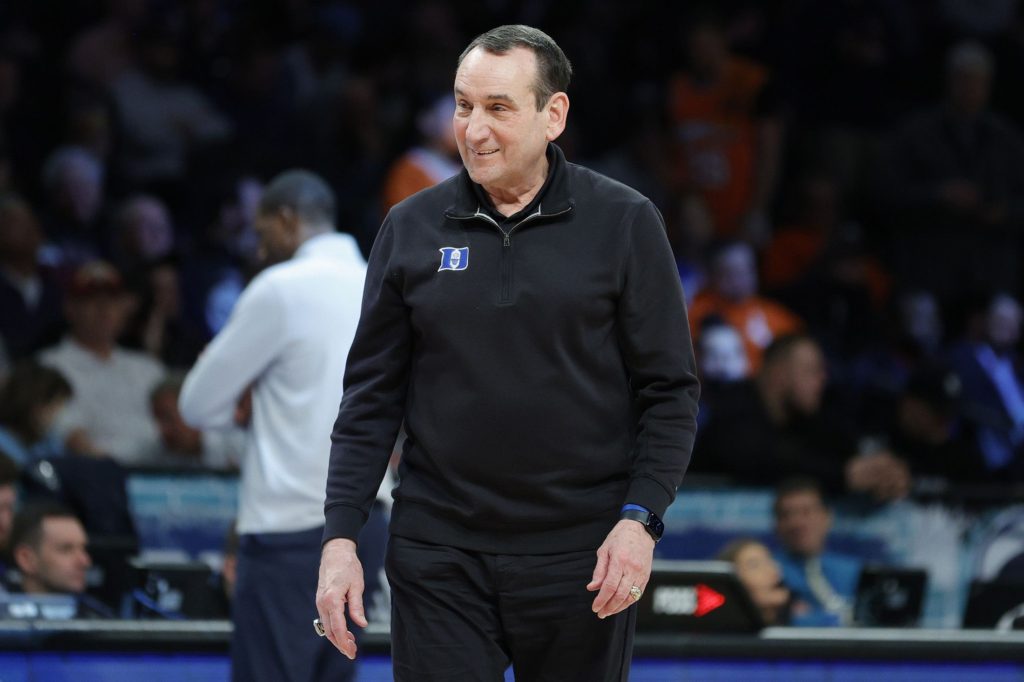Do these March Madness coaches make too much money?

With the March Madness college basketball tournament getting underway, a top Democrat on the House Ways and Means Committee is asking three top schools with highly paid basketball coaches to hand over data about those compensation packages.
Representative Bill Pascrell, a New Jersey Democrat, sent letters to Duke, Villanova and Auburn Universities — each participants in the popular NCAA Division I tournament — asking them to divulge information about their coaches’ pay structure and their basketball programs.
The letters asked for details about Duke’s Mike Krzyzewski’s reported $7 million package, Villanova’s Jay Wright’s reported $6.1 million contract and Auburn’s Bruce Pearl’s reported $3.98 million deal.

Sarah Stier/Photographer: Sarah Stier/Getty
“Fans watching games this week are rightly stunned by the string of gigantic contracts awarded to coaches being lavished out by taxpayer-funded universities,” Pascrell said in a statement. “One of Congress’s oldest bodies, the Ways and Means Committee exists to oversee the federal tax code and safeguard the Treasury from waste and excess. Our Oversight Committee will keep shining a light on any possible abuses of our tax code.”
Pascrell said he is looking at coach compensation information to see if the large salaries run afoul of the schools’ tax-exempt status for being an educational institution.
Third round
This is the third round of letters that Pascrell has sent in recent months to several college football and basketball programs. In previous inquiries, he asked officials at Louisiana State University, University of Southern California, Michigan State University and the University of Miami for details about pay for their coaches.
Congress has sought to clamp down on highly paid sports coaches in recent years, including a measure in former President Donald Trump’s 2017 tax law law that places an excise tax on a nonprofit’s five highest-paid employees earning $1 million a year or more. That hits many elite college basketball and football coaches but also applies to all tax-exempt organizations under the IRS code’s Section 501.
At top-level programs, some of the compensation for football and basketball coaches comes from marketing and broadcast deals.
Pascrell requested that the three universities respond to his questions by March 28.


